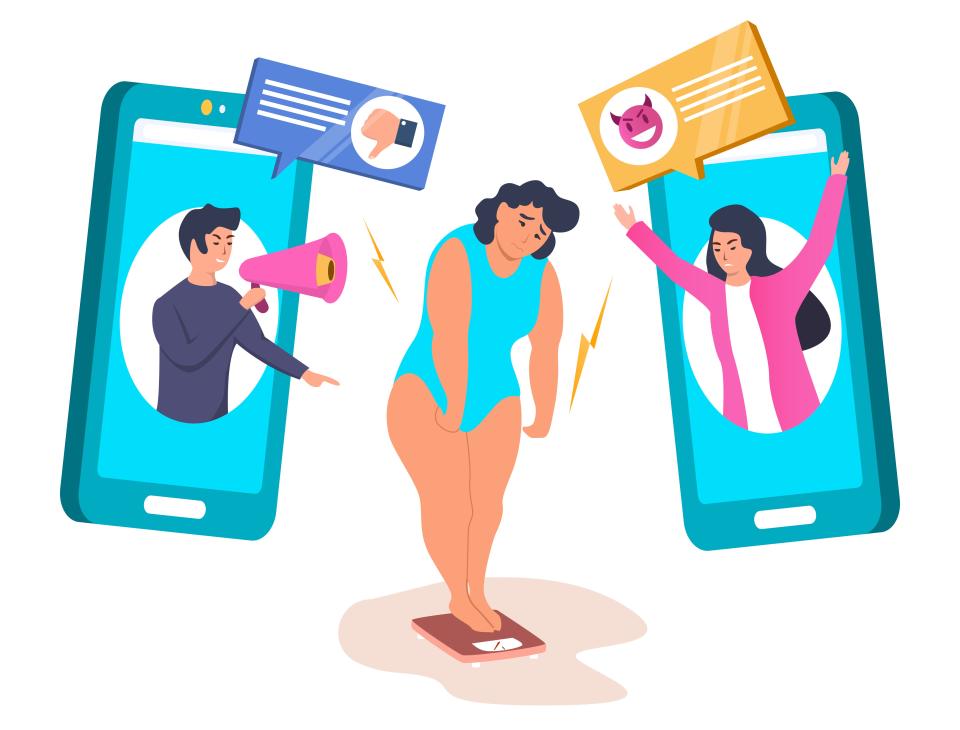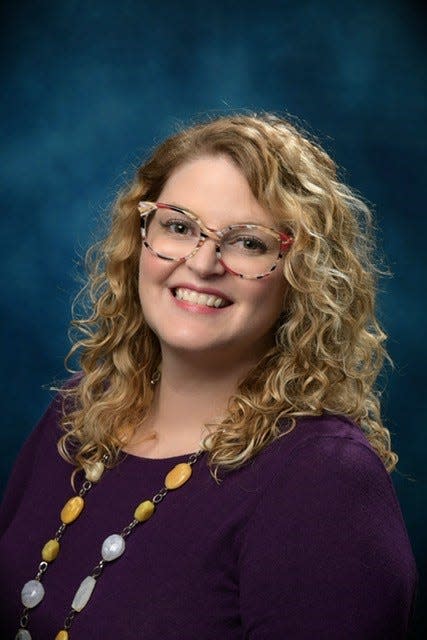My 8-year-old was called 'fat.' Here's how to fight the body shaming battle.
I wrote a draft of this column, then deleted it. My husband said I should forget about it, that I should let my daughter be a kid without her business being in the paper. I agreed. Until today, when she climbed in my car after school and said, “You don’t want to know,” when I asked how her day went.
“Tell me.”
“My two friends called me fat. They were body shaming me.”
My jaw clenched. My hands tightened on the steering wheel. See, last week my sweet girl climbed in the car and asked what the word “chubby” meant. I asked why she wanted to know, and she reluctantly said one of her friends called her chubby. One of her good friends.
I rambled about how you can’t be fat, you can only have fat on your body, and that her shape was still changing and will for a long time. That it was rude for her friend to say that, and if she didn’t want to be friends with that girl, she didn’t have to be. (I’ve since talked to the parent and worked it out.)

My husband was wrong (which is rare) — I do need to write about this, and for good reason. My daughter is 8, in the second grade. I’m glad she didn’t know what chubby meant in that context; in my family we don’t use "fat" or anything close. We don’t comment on people’s bodies because they are none of our business. But I feel like the “battle” has begun, and I hate that for my daughter.
People think that words don’t matter or that kids today should be stronger, but words are weapons, and when you’re told something repeatedly you start to believe it. It can damage your psyche. I’m proof of that. When I was in elementary school, I was body shamed and called fat, and this continued all the way to high school. I have believed I was fat for most of my life, thinking that because I was overweight, I did not deserve love or respect. I’ve gained and lost the same 40-60 pounds, never being happy with the number on the scale.
I was so unhappy with my body after having my two children that I had a breast reduction and a tummy tuck — the Mommy Makeover. But I started gaining weight soon after, then decided on weight loss surgery as the next quick fix. I initially lost weight, but it didn’t stay off because I didn’t deal with my eating disorder (that I picked up in high school). Most of my adult years have been spent feeling insecure, ugly, worthless and a slave to the scale. To be honest, I wasn’t even bullied that much.
Just in the past couple of years have I been able to confront my eating disorder, ditch the diets and shed the weight of other people’s opinions. Then the literal weight came off. My six-week stay at a psychiatric hospital helped.
But I don’t want to tell my daughter that things get better when you have a couple of surgeries, go to a hospital and turn 38. That only then you’re golden.
No, that’s my story. But I am not alone. Nine percent of the U.S. population — 28.8 million people — will have an eating disorder, reports the National Association of Anorexia Nervosa and Associated Disorders. Eating disorders are among the deadliest mental illnesses, second only to opioid overdose.
So, please, talk to your kids about bullying and body shaming, but monitor your own kids as well. Forty-two percent of first- to third-grade girls want to be thinner. Eighty-one percent of 10-year-old girls are afraid of being fat, and 46% of children 9-11 years old are “sometimes” or “very often” on diets. Thirty-five to 57% of adolescent girls engage in crash dieting, fasting, self-induced vomiting, diet pills or laxatives.
That’s insane, and it makes my heart hurt. They’re just babies.
I’m doing the best I can, teaching my daughter how to be healthy. It’s a lot of work because I’m just now learning myself.
I’m determined to break the cycle, and you can, too! I would hate for my daughter to look up from her life at 38 and finally say, “Wow, I’m so happy.” It does feel pretty good right now, but I don’t want her to wait so long and go through so much. She deserves more. Our children deserve more.
My daughter needs to see herself as the beautiful, smart, confident, creative, witty girl her family and I see, marred not by the opinions of the scale or the girls at her school.
When I was little we used to say, “Sticks and stones may break my bones, but words will never hurt me.”
But they do hurt, and they can have a lasting effect. It has taken me 38 years to come to terms with my issues.
How long will it take our children?

For more than 20 years, Heather Loeb has experienced major depression, anxiety and a personality disorder, while also battling the stigma of mental health. She is the creator of Unruly Neurons (www.unrulyneurons.com), a blog dedicated to normalizing depression and a member of state Rep. Todd Hunter’s Suicide Prevention Taskforce.
MIND MATTERS
Now more than ever we need to take care of our mental health. Guest columnist Heather Loeb discusses why and explores other important mental health topics in this special series.
This article originally appeared on Corpus Christi Caller Times: My 8-year-old was called 'fat.' Here's how to fight body shaming.

